
Harnessing Artificial Intelligence for Health
Our Vision
WHO's vision is to foster digital frontiers and nurture an AI ecosystem for safety, equity, and the advancement of the Sustainable Development Goals, contributing to a healthier world.
At WHO, we are working towards a future where AI enhances health, ensuring that no one is left behind.
Within the realm of AI for Health, WHO’s strategic approach centers around Three Pillars:
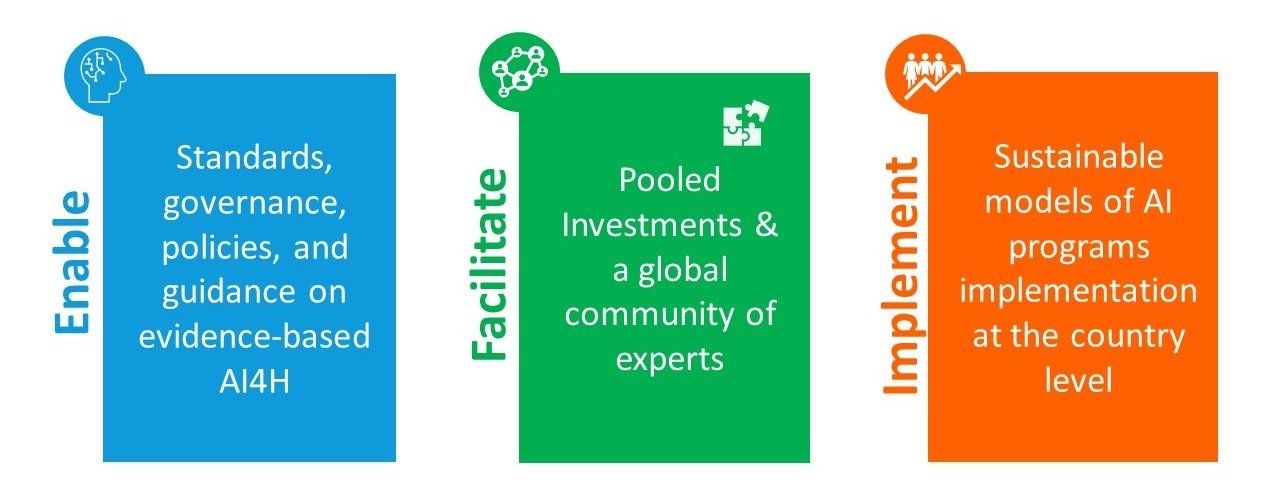
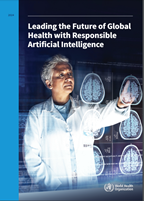
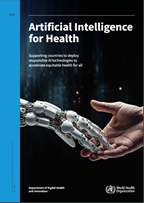
Artificial Intelligence for Health
WHO Director-General's remarks at the AI for Good Summit
LIVE from #WHA76 on Artificial Intelligence and Health
WHO’s Approach on Artificial Intelligence for Health
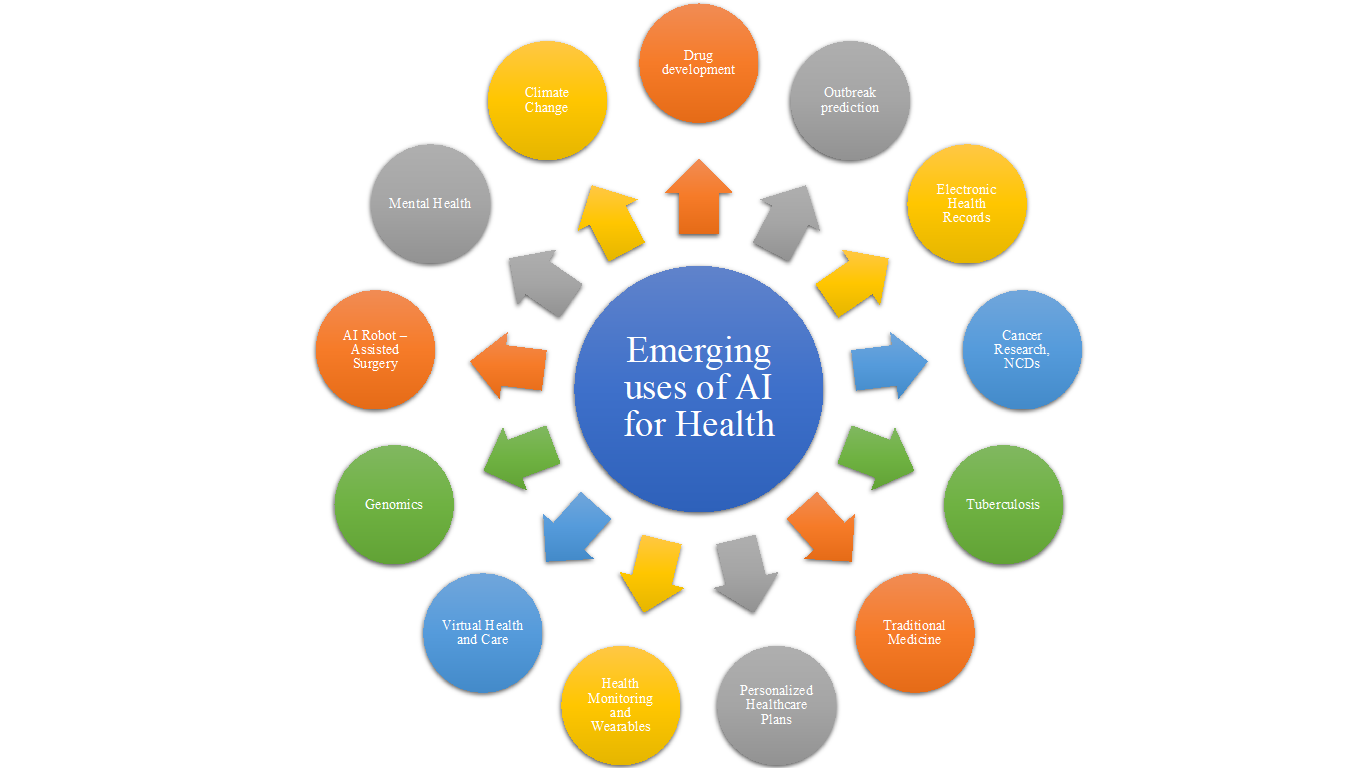
Prioritizing AI for health is crucial, given its potential to enhance healthcare and address global health challenges, including the achievement of Sustainable Development Goals. The urgency is exacerbated by a significant pacing gap, with technology outpacing legal frameworks. WHO is actively guiding Member States, developing ethical standards, and convening expert groups to address these challenges, promoting responsible AI development, and fostering collaboration among stakeholders to mitigate risks and safeguard public health and trust.
WHO envisions a future where AI serves as a powerful force for innovation, equity, and ethical integrity in healthcare. The overall goal is to help Member States take AI to the people to enable enhanced, sustainable, and smarter health care.
Bridging Gaps
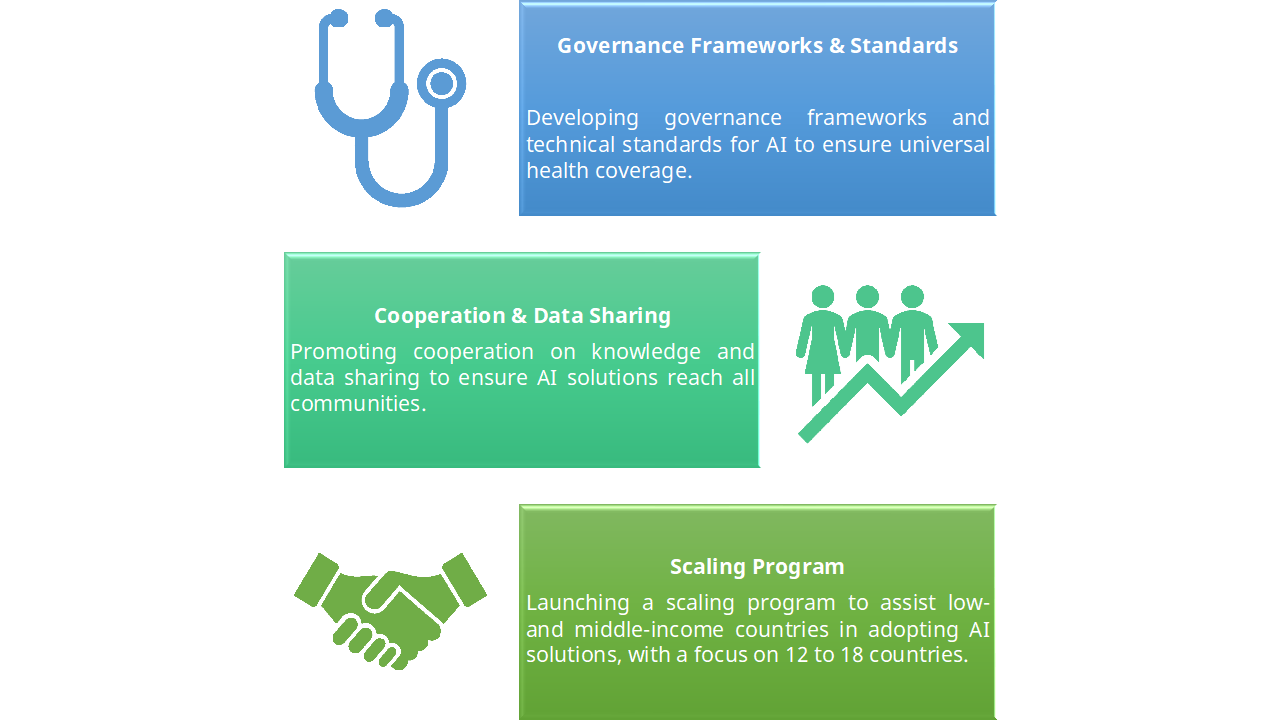
To harness a culture of innovation and ethics in healthcare, WHO partnered with UN specialized agencies to establish the Global Initiative on Artificial Intelligence for Health, a collaborative effort that is shaping the future of healthcare through AI.
Strategy and guidance

Ethics and governance of artificial intelligence for health: Guidance on large multi-modal models
Artificial Intelligence (AI) refers to the capability of algorithms integrated into systems and tools to learn from data so that they can perform automated...

Generating Evidence for Artificial Intelligence Based Medical Devices: A Framework for Training Validation...
This first-of-its-kind publication from the WHO is a framework targeted at developers and researchers of AI-based software as a medical device, as well...

Global strategy on digital health 2020-2025
The purpose for a Global Strategy on Digital Health is to promote healthy lives and wellbeing for everyone, everywhere, at all ages. To deliver its potential,...

Ethics and governance of artificial intelligence for health: WHO guidance Executive summary
The WHO guidance on Ethics & Governance of Artificial Intelligence for Health is the product of eighteen months of deliberation amongst leading experts...
Online courses
Publications and press releases

Benefits and risks of using artificial intelligence for pharmaceutical development and delivery
WHO recognizes that artificial intelligence (AI) holds great promise for pharmaceutical development and delivery. However, AI also presents risks and ethical...

This technical brief provides an overview of the landscape surrounding the use of artificial intelligence (AI) in sexual and reproductive health and rights...

Ageism in artificial intelligence for health
The WHO policy brief Ageism in artificial intelligence for health examines the use of artificial intelligence (AI) in medicine and public health for older...
References
WHO Bulletin: Artificial intelligence for global health: cautious optimism with safeguards
Journal of Medical Systems: Machine Learning for Health: Algorithm Auditing & Quality Control
WHO and ITU establish benchmarking process for artificial intelligence in health
Whitepaper for the ITU/WHO Focus Group on Artificial Intelligence for Health



